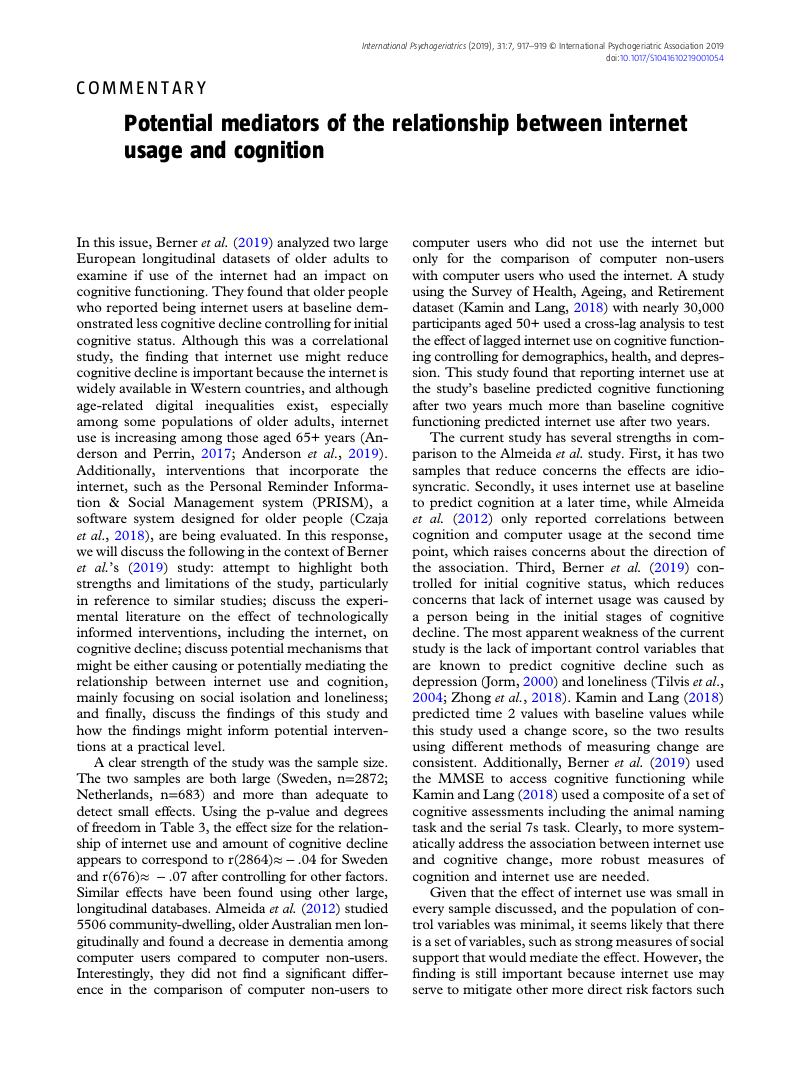Crossref Citations
This article has been cited by the following publications. This list is generated based on data provided by Crossref.
Treichler, Emily B.H.
and
Jeste, Dilip V.
2019.
Cognitive decline in older adults: applying multiple perspectives to develop novel prevention strategies.
International Psychogeriatrics,
Vol. 31,
Issue. 7,
p.
913.
Kamin, Stefan T.
Seifert, Alexander
and
Lang, Frieder R.
2021.
Participation in activities mediates the effect of Internet use on cognitive functioning in old age.
International Psychogeriatrics,
Vol. 33,
Issue. 1,
p.
83.
BABADAĞ SAVAS, Burcu
and
BALCİ ALPARSLAN, Güler
2021.
Yeni Bir Kavram Dijital Demans: Hemşirelik Öğrencilerinin Dijital Demans Durumu.
STED / Sürekli Tıp Eğitimi Dergisi,
Wang, Kun
Marbut, Alexander R.
Suntai, Zainab
Zheng, Dianhan
and
Chen, Xiayu
2022.
Patterns in older adults' perceived chronic stressor types and cognitive functioning trajectories: Are perceived chronic stressors always bad?.
Social Science & Medicine,
Vol. 311,
Issue. ,
p.
115297.
Xia, Xuefei
Yuan, Pingqiao
Zhao, Xue
Jia, Fang Rong
Li, Bangyang
and
Cai, Peng
2024.
Effect of Internet Use on Cognitive Function of Middle-Aged and Elderly Adults in China: Evidence from China Family Panel Studies.
Journal of Alzheimer's Disease Reports,
Vol. 8,
Issue. 1,
p.
387.



